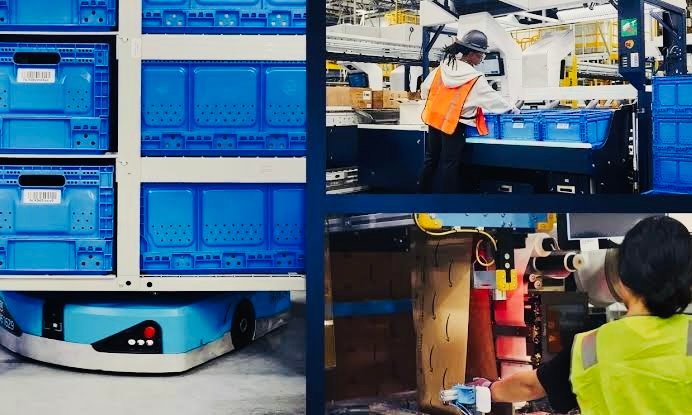
Amazon plans to expand its network of micro-fulfillment centers in India from 100 to 300 by the end of 2025, reflecting the global e-commerce giant’s move toward accelerated commerce.
These small facilities, operating in cities like Bengaluru, Delhi, and Mumbai, are designed to expedite the delivery of daily essentials and high-demand items. They are comparable to dark stores operated by major e-commerce companies like Swiggy Instamart and Eternal’s Blinkit.
The company stated that this expansion is part of a ₹2,000 crore investment planned for India this year. “We have invested ₹2,000 crore throughout the year to improve infrastructure to provide our sellers with more opportunities to bring their inventory and offer the best to customers,” said Karan Chugh, Director of Operations, Amazon India. He further explained that the e-commerce giant is currently focusing on metro markets for Amazon Now and will then focus on Tier 2 and Tier 3 markets.
Multi-pronged approach to logistics
In addition to micro-fulfillment centers, this investment includes 17 new fulfillment centers, 12 of which were added in preparation for this year’s Great Indian Festival sale, as well as six sortation centers and 75 delivery stations.
The company is betting on a variety of delivery options to expand its reach and reliability—including its “I Have Space” program. This initiative partners with neighborhood grocery stores and other small businesses for last-mile delivery. According to Amazon, over 28,000 such partners now operate across India, providing a hyper-local and reliable link for customers.
“‘I Have Space’ has been one of our most reliable channels. Local partners know their customers and neighborhoods well, and this model also creates an additional revenue stream for them,” Chugh said. He added that the program has since been replicated in more than a dozen international markets.
Technology and artificial intelligence are another cornerstone of Amazon’s strategy. The company has introduced AI tools that reduce the time it takes for sellers to list new products from hours to minutes. For customers, an AI-powered assistant on the app suggests products based on their preferences and provides historical price data to build confidence in purchasing.
Technology and B2B Growth
AI also assists Amazon’s operations, from mapping optimal delivery routes to helping associates locate hard-to-reach addresses. Chugh added, “AI is being used in every aspect of our business. It increases productivity and efficiency—whether for sellers, customers, or delivery associates.” It has also deployed automation in warehouses, positioned as “job assistants” to simplify tasks rather than reduce staffing. This includes inventory management using scanners, sortation assistants through conveyors, and other touchpoints in the logistics and fulfillment chain.
The company also expects to create 150,000 seasonal jobs across its various sales events, culminating with the major festive season sale. Chugh said this is a significant increase compared to the 110,000 seasonal jobs created by Amazon India last year. He also said that 22% of seasonal employees have opted to return next year.
Ahead of the festive season, Amazon is also strengthening its B2B arm, Amazon Business, by tripling dedicated fulfillment capacity in Mumbai, Delhi, and Bengaluru, ensuring up to 50% faster deliveries for enterprises and small businesses. With 1,700,000 sellers and over 190 million GST-compliant products now available on the platform, Amazon Business recorded 35% year-on-year sales growth in the first half of 2025, driven by rising wholesale orders and strong adoption in Tier 2 and Tier 3 cities.
